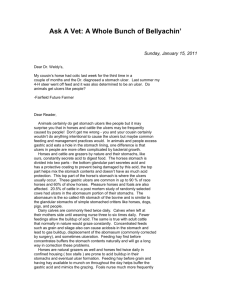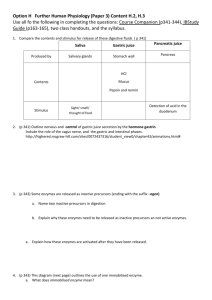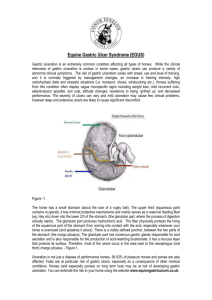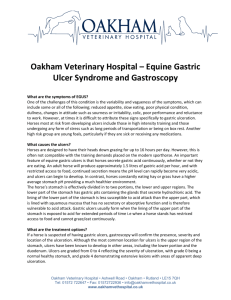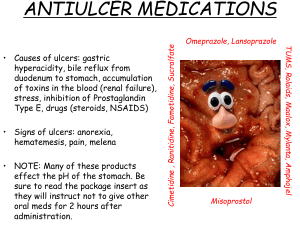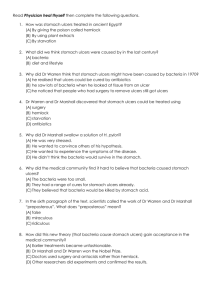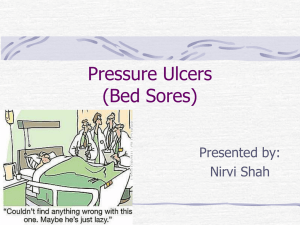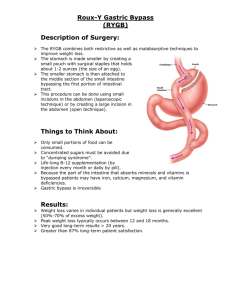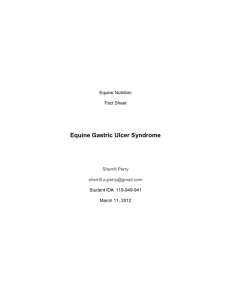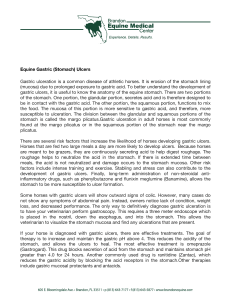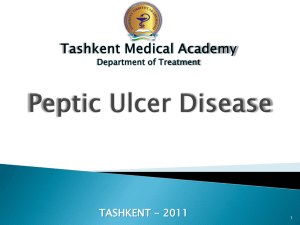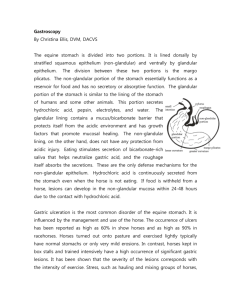Ask A Vet: Stomach Ulcers – A Real Pain for Horse Owners
advertisement
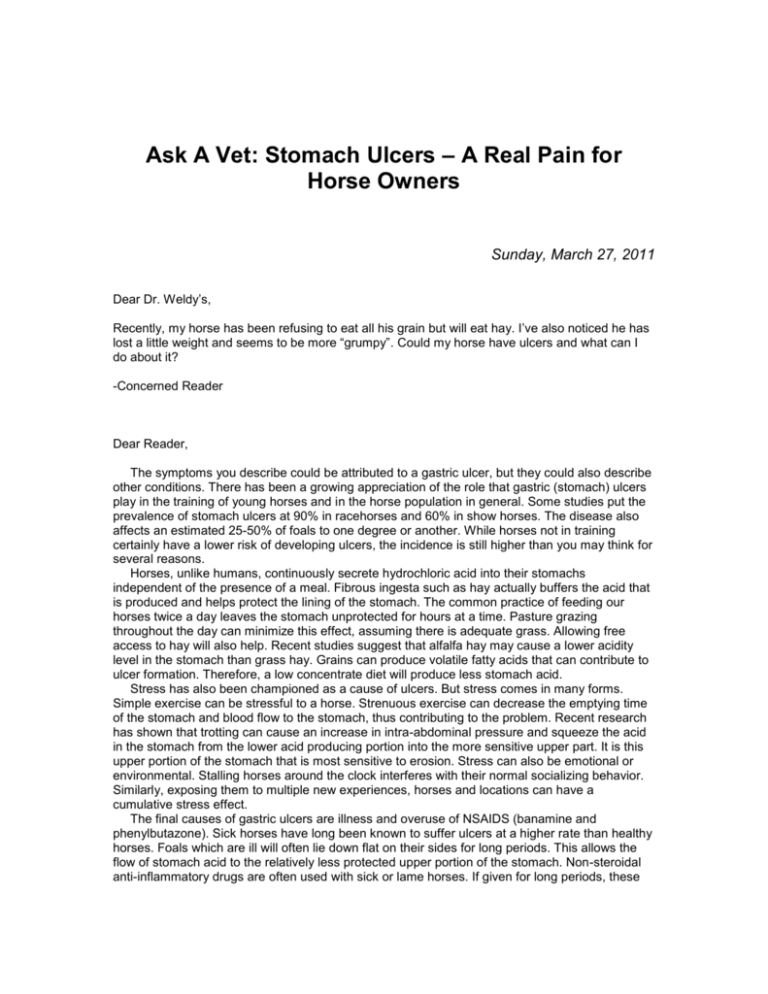
Ask A Vet: Stomach Ulcers – A Real Pain for Horse Owners Sunday, March 27, 2011 Dear Dr. Weldy’s, Recently, my horse has been refusing to eat all his grain but will eat hay. I’ve also noticed he has lost a little weight and seems to be more “grumpy”. Could my horse have ulcers and what can I do about it? -Concerned Reader Dear Reader, The symptoms you describe could be attributed to a gastric ulcer, but they could also describe other conditions. There has been a growing appreciation of the role that gastric (stomach) ulcers play in the training of young horses and in the horse population in general. Some studies put the prevalence of stomach ulcers at 90% in racehorses and 60% in show horses. The disease also affects an estimated 25-50% of foals to one degree or another. While horses not in training certainly have a lower risk of developing ulcers, the incidence is still higher than you may think for several reasons. Horses, unlike humans, continuously secrete hydrochloric acid into their stomachs independent of the presence of a meal. Fibrous ingesta such as hay actually buffers the acid that is produced and helps protect the lining of the stomach. The common practice of feeding our horses twice a day leaves the stomach unprotected for hours at a time. Pasture grazing throughout the day can minimize this effect, assuming there is adequate grass. Allowing free access to hay will also help. Recent studies suggest that alfalfa hay may cause a lower acidity level in the stomach than grass hay. Grains can produce volatile fatty acids that can contribute to ulcer formation. Therefore, a low concentrate diet will produce less stomach acid. Stress has also been championed as a cause of ulcers. But stress comes in many forms. Simple exercise can be stressful to a horse. Strenuous exercise can decrease the emptying time of the stomach and blood flow to the stomach, thus contributing to the problem. Recent research has shown that trotting can cause an increase in intra-abdominal pressure and squeeze the acid in the stomach from the lower acid producing portion into the more sensitive upper part. It is this upper portion of the stomach that is most sensitive to erosion. Stress can also be emotional or environmental. Stalling horses around the clock interferes with their normal socializing behavior. Similarly, exposing them to multiple new experiences, horses and locations can have a cumulative stress effect. The final causes of gastric ulcers are illness and overuse of NSAIDS (banamine and phenylbutazone). Sick horses have long been known to suffer ulcers at a higher rate than healthy horses. Foals which are ill will often lie down flat on their sides for long periods. This allows the flow of stomach acid to the relatively less protected upper portion of the stomach. Non-steroidal anti-inflammatory drugs are often used with sick or lame horses. If given for long periods, these drugs can increase the likelihood of gastric ulcers by inhibiting the formation of prostaglandins, which help to protect the stomach lining. There are no definitive symptoms that one can say belong to ulcers alone. In fact, many gastric ulcers go unnoticed because the horse simply “deals with it” and gets on with life. However, there are some clinical signs that are more frequently encountered than others. A poor appetite or failure to finish a meal, preferring hay over grain, rough or dull hair coat, weight loss, a change in attitude (lethargic or more agitated), decreased performance, or recurrent episodes of colic can all signal the existence of an ulcer. In foals, symptoms might include poor appetite, intermittent nursing, rolling onto their backs, grinding of their teeth, increased salivation, diarrhea and poor body condition. Definitive diagnosis is made with an endoscopic examination of the lining of the stomach, but presumptive diagnosis can be made based on clinical signs and response to therapy. Treatment of gastric ulcers usually is accomplished through the use of the drug omeprazole. This is the same medication found in Prilosec used to treat humans with gastric ulcers. Omeprazole is an “acid pump inhibitor” and inhibits gastric acid secretion regardless of the stimulus. It is given orally once a day for 28 days to give the stomach lining enough time to heal. It can also be given at one half the treatment dose to prevent ulcers. -Dr. Wade Hammond
